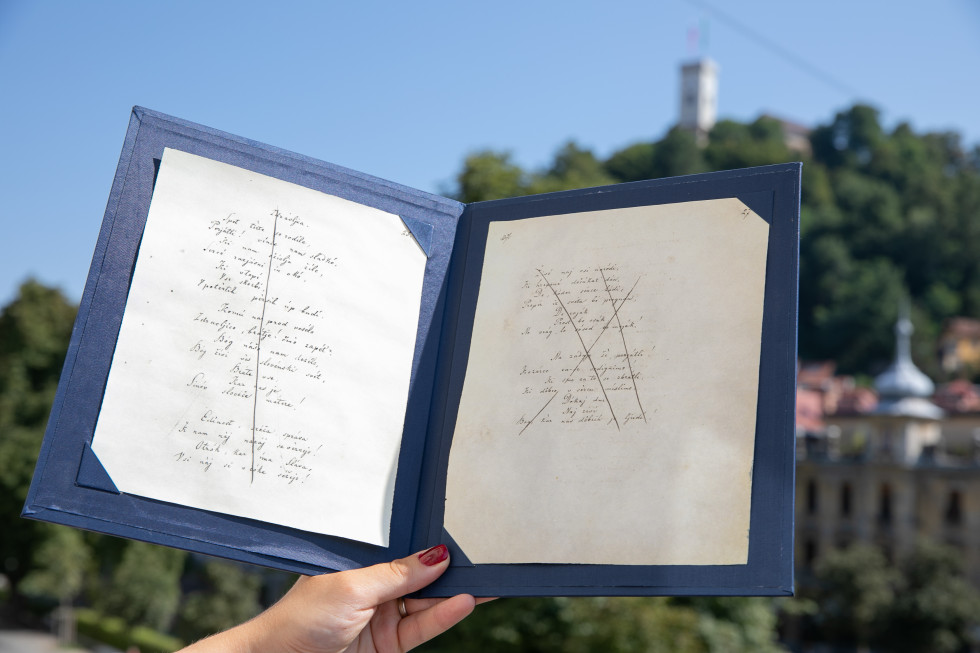The verse "Long live all nations" by Prešeren permanently symbolizes the central idea of European integration
At the conclusion of Slovenia's first presidency of the Council of the EU in June 2008, we erected a marble monolith in front of the Council headquarters in Brussels, on which the verse from Prešeren's Toast "Long live all nations" is inscribed in all 23 official languages of the European Union at that time.
The monument, four meters high and one meter wide, is made from a nearly two-ton block of marble from Hotavlje, Slovenia. Prešeren's verse, which is the central visual element of the monolith, is first written in Slovenian and then in the other 22 official EU languages. The sequence was by the author of the monolith, renowned architect Boris Podrecca, adjusted according to the veins in the stone to achieve a compositional effect.
This verse by Slovenia's greatest poet also begins the Slovenian anthem, symbolizing our open attitude towards other nations and calling for unity among all peoples. By placing it in front of the Justus Lipsius building, where representatives of states, ministers, and Union leaders meet, it symbolically calls on them not to forget the fundamental idea of the beginning of European nations' integration during their meetings and discussions. This is primarily the meaning and mission of the monolith, which will forever remain at the crossroads named after Robert Schuman, one of the fathers of European Union, and will represent a piece of Slovenian land in the heart of Europe.
During Slovenia's second presidency of the Council of the EU in 2021, we also highlighted the message of Prešeren's Toast. As the highest protocol gift, we presented the presidents of states and governments, as well as EU institutions, with facsimiles of the Toast. The facsimile of the Toast is accompanied by expert text about the Toast, and the poem is translated into 24 official EU languages.
The Toast was written in autumn 1844, and its text had a European dimension then and still does today. Because of its strong message, the European Commission awarded it the prestigious European Heritage Label on March 31, 2020.

